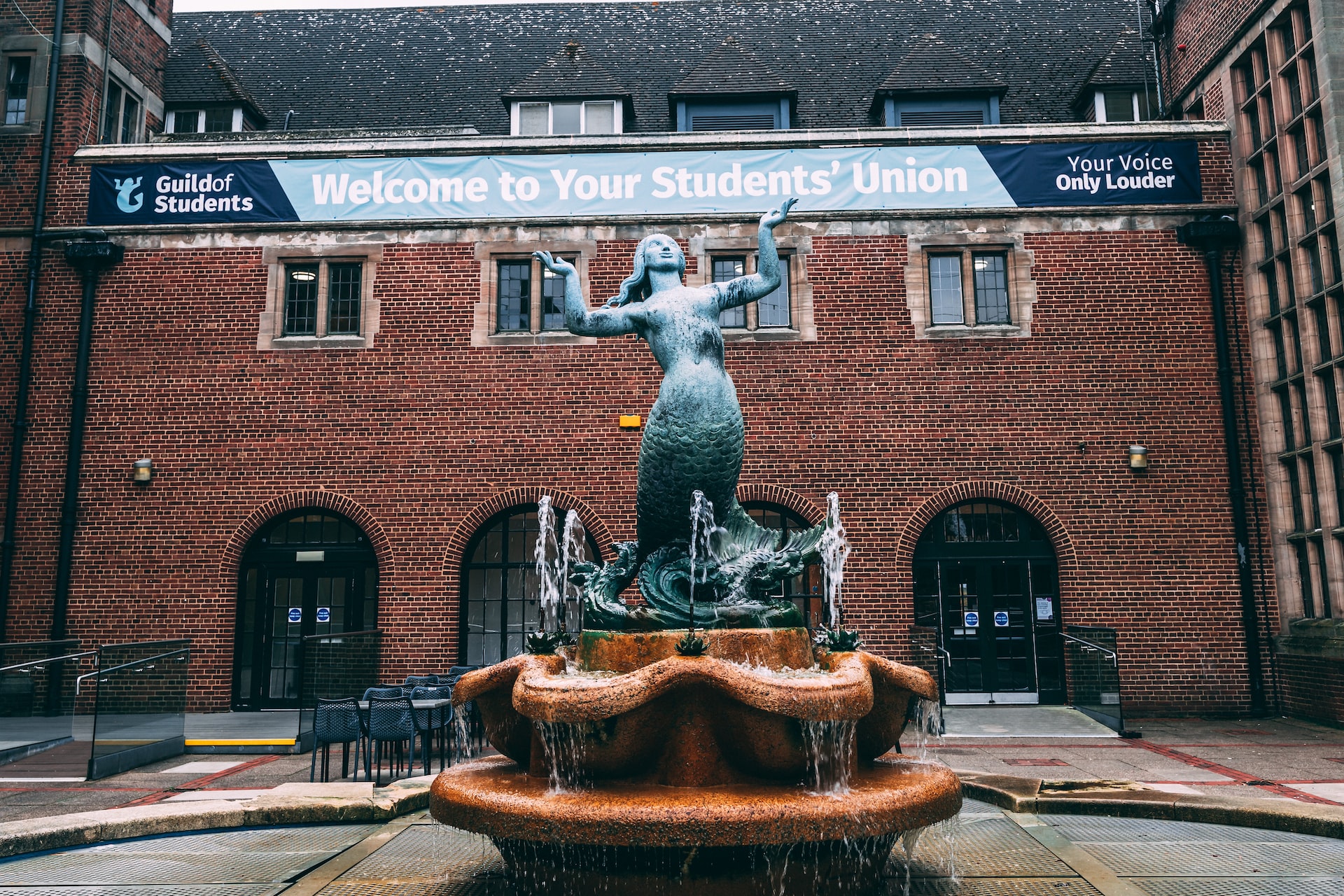
News Editor Charlie O’Keeffe reports on the Welfare and Community Officer interview for media day
On Thursday 16th, Dean Turner, who is running for the Welfare and Community Officer role, accepted an invite from Burn FM to be interviewed by Ayabonga Hlatshwayo to talk about his campaign and manifesto. This is what he had to say.
The first question asked to Dean is regarding his campaign gimmick. He explains that it is referencing the sitcom Community and he thought it would be ‘a funny thing if I adopted the image of the dean’, particularly because the title of the show corresponds to the role he is running for. Ayabonga Hlatshwayo then asks what made him run for Welfare Officer. Dean begins his answer by explaining that he has ‘been a Community Warden at the Guild since September’. He says he really loves the job and how it makes ‘Selly a better place one day at a time’. He thought it was a great time to ‘give back to that community ethos’ by running to be a Guild officer.
Ayabonga asks how his manifesto makes him stand out. He responds by explaining that his ‘manifesto is sort of broken down into four key pledges and those are: provide for students who are experiencing crisis in the cost of living crisis, strive for a safer Selly, take action against rogue landlords and also uphold equality and diversity in all facets of university life’. He says he stands out because he has ‘the credentials’ and the ‘experience to actually deliver them’, to demonstrate this Dean draws particularly on his experience working for tenants’ rights with the Acorn Renters Union.
“He thought it was a great time to ‘give back to that community ethos’ by running to be a Guild officer
Ayabonga asks Dean to elaborate further on his equality and diversity policies, suggesting that such policies can be ‘surface level’. He answers that he plans to ‘work very closely with the Guild liberation officers and liberation associations’, and that he intends to ‘continue the EDI town halls’ that have been taking place this year.
Dean also puts forward the idea of launching ‘a culture Commission’, something he knows the Durham student union have in place. He says that this commission would ‘basically look into kinds of campus culture’ in order to ‘tackle prejudice’ and ‘implicit bias’ and he suggests that it would ‘also look into how hate crimes are reported’ to ensure that ‘it’s working well’ and that ‘people were provided with the right support’. He also plans to ‘look into creating a diversity calendar’ which would allow ‘student groups to put their events onto this’ and ’show off the amazing events that we have here at University of Birmingham that showcase the real diversity of the university’.
Ayabonga asks him about the cost-of-living crisis, which is something his manifesto focuses on, and he explains the current officer’s efforts – the community pantry and the free Selly Express. When asked how he will continue or improve upon this, Dean responds by praising his predecessor and saying that Reeve ‘has done excellent work’. He cites his experience as a Community Warden because this meant that he has already helped out with the community pantry. Dean’s suggested improvement for the initiative is to better cater ‘to everyone’s dietary needs’, so this would include Kosher, Halal, vegan, and gluten-free options. He is aware that the pantry is dependent on donations, so he suggests promoting these needs to achieve his goal of better catering to various dietary requirements.
“he ‘would just always advocate for the lowest possible rent across all accommodation sites, because frankly it’s too high anyway’
His next policy relating to this is that he ‘would just always advocate for the lowest possible rent across all accommodation sites, because frankly it’s too high anyway’. His final suggestion is to ‘make sure that there are plenty of low-cost options at Joes’ because he doesn’t ‘think people should be priced out of the Guild’ when it’s ‘supposed to be for students’
Ayabonga asks him how he would deal with toxic society culture, which is a question that a student had put forward but not a focus of Dean’s manifesto. He thinks this ‘is a big problem’ that often ‘goes unnoticed’, as he feels that ‘a lot of people take it for granted that they have to do these weird hazing rituals’. Deans says he will tackle this as part of the ‘Culture Commission’ because this would involve ‘investigating society culture’ to find out ‘what goes on behind closed doors’. Dean remarks that ‘it’s surprising the amount of posts on fab you see about people really not experiencing the best of societies when there is so much good that can be offered’, and he gives the example of ‘people experiencing prejudice and discrimination’. He says that this should be ‘stamped out completely and promises that his ‘culture Commission will take great strides in doing so’.
Dean is asked whether his manifesto pledges are realistic. Dean responds to this by saying that ‘I wouldn’t have pledged to do these things if I didn’t think I could achieve them’. He says it is important to be ‘transparent and realistic’ about what he can achieve. Ayabonga asks what makes the perfect Welfare officer, and how does Dean measure up. Dean says he hopes that he could ‘come close’ to being a perfect Welfare officer. He says that this would involve being ‘active in all affairs’, being ‘conscientious’ and truly caring about the Welfare of ‘all students’ not just particular groups. The interview finishes with the question: Why should students vote for you? Dean responds that he has the ‘credentials’ to deliver on what he’s promising. He thinks his pledges will make university ‘better for everyone’.
Comments